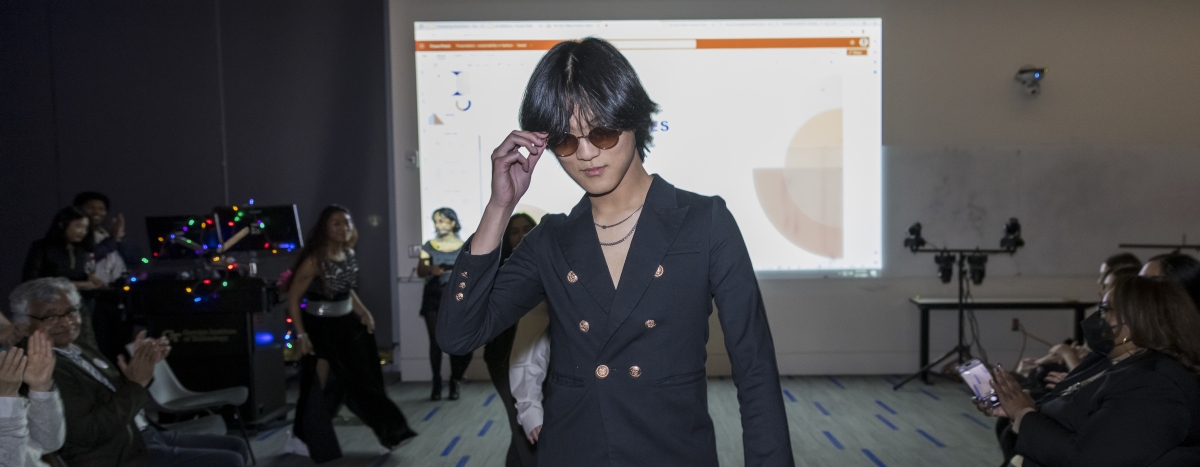 Steven Yang, an undergraduate in Computational Media and a STEMcomm student, modeling sustainable fashion at STEMcomm's most recent Atlanta Science Festival event, a science-themed fashion show. Photo by Dane Sponberg (Raftermen Photography for ScienceATL).
Steven Yang, an undergraduate in Computational Media and a STEMcomm student, modeling sustainable fashion at STEMcomm's most recent Atlanta Science Festival event, a science-themed fashion show. Photo by Dane Sponberg (Raftermen Photography for ScienceATL).
Apr 11, 2023 | Atlanta, GA
For the past 10 years, there’s only been one place in Atlanta where you can touch a brain, see a science fashion show, watch scientists give improv performances, and more — and that’s at the Atlanta Science Festival.
And during that time, the faculty and students of STEMcomm have become a festival staple.
STEMcomm, which stands for Science, Technology, Engineering, and Math (STEM) communication, is a course in Georgia Tech’s Vertically Integrated Projects (VIP) program. Established in 2016 by three faculty in the College of Sciences, the course uses science communication to create outreach events for the Atlanta Science Festival — and popular-science content to share on social media and online publications.
“I feel like there is a gulf in the world between people who do science and the general public,” says Jennifer Leavey, a principal academic professional in the School of Biological Sciences, the College’s assistant dean for Faculty Mentoring, and one of the founders of the course. “There is very little crosstalk there.”
The goal of STEMcomm is to bridge that gap and connect with an at-times overlooked audience: adults.
“When it comes to science, I think in general, there’s not a lot of new learning once you get beyond school-age. Teachers do a great job of engaging children with science, but for adults, I mean, there's not a lot there,” Leavey added. “I think there’s a real space for people with science knowledge to help bring that conversation more into the mainstream.”

Bridging the gap
STEMcomm was originally born out of an online science magazine called Charged that Leavey started with a small group of Georgia Tech students in 2011. With the idea to expand on Charged more formally, Leavey recruited two senior academic professionals in the College of Sciences — Michael Evans in the School of Chemistry and Biochemistry and Edwin Greco in the School of Physics — to establish STEMcomm.
The instructional team grew to include Joseph Mendelson, an adjunct professor in the School of Biological Sciences and director of Research for Zoo Atlanta, in 2017; and Audra Davidson, a communications officer in the College of Sciences who took the class as a graduate student at Tech, in 2022.
In the beginning, students in the course focused on writing popular science articles and creating science comics and illustrations for Charged and social media, with the instructors providing feedback.
“Since the time that I joined,” says Jalen Borne (CHEM ‘22), now a graduate student in the School of Materials Science and Engineering, “we grew into making YouTube videos or making TikToks.” Borne has been in STEMcomm since fall of 2019 when he was an undergraduate in the School of Chemistry and Biochemistry. “Some people have made podcast-style things together. It's really just kept growing, and it’s probably going to keep growing.”
Students can choose science topics and content mediums, which often makes the class “feel like a fun science club,” says Leavey. “I love that people get to explore their own interests and be curious.”
A festival staple
In 2017, the team began channeling their science communication efforts into outreach with the Atlanta Science Festival.
“The events really pushed it over the top,” Leavey says. “I just love to think back and look back through the pictures of all of the events we've done for the Atlanta Science Festival through the years.”
Past STEMcomm events have included science-themed escape rooms, a food festival, and a sober science speakeasy, to name a few. During Covid-19 lockdowns, STEMcomm also devised online cooking demonstrations, focusing on the chemistry of food preparation.
“Anything that we can do to get people interested in science, particularly people who are past high school, is a real net positive,” said Greco. And because the students often partner with researchers and student groups across campus for their events, Greco says that the course also helps "get people interested in the science that is being done right in their backyard, at Georgia Tech.”
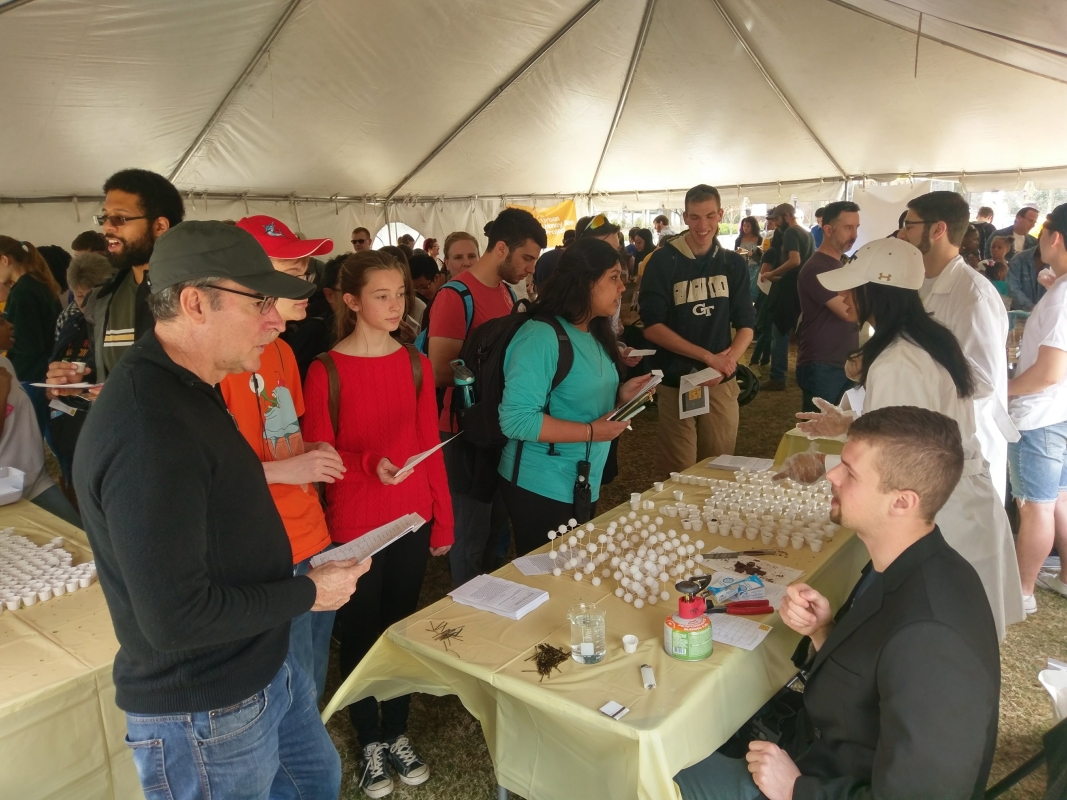
Attendees gather on Tech green for Taste of Science, a science-themed food festival the course organized in 2018.
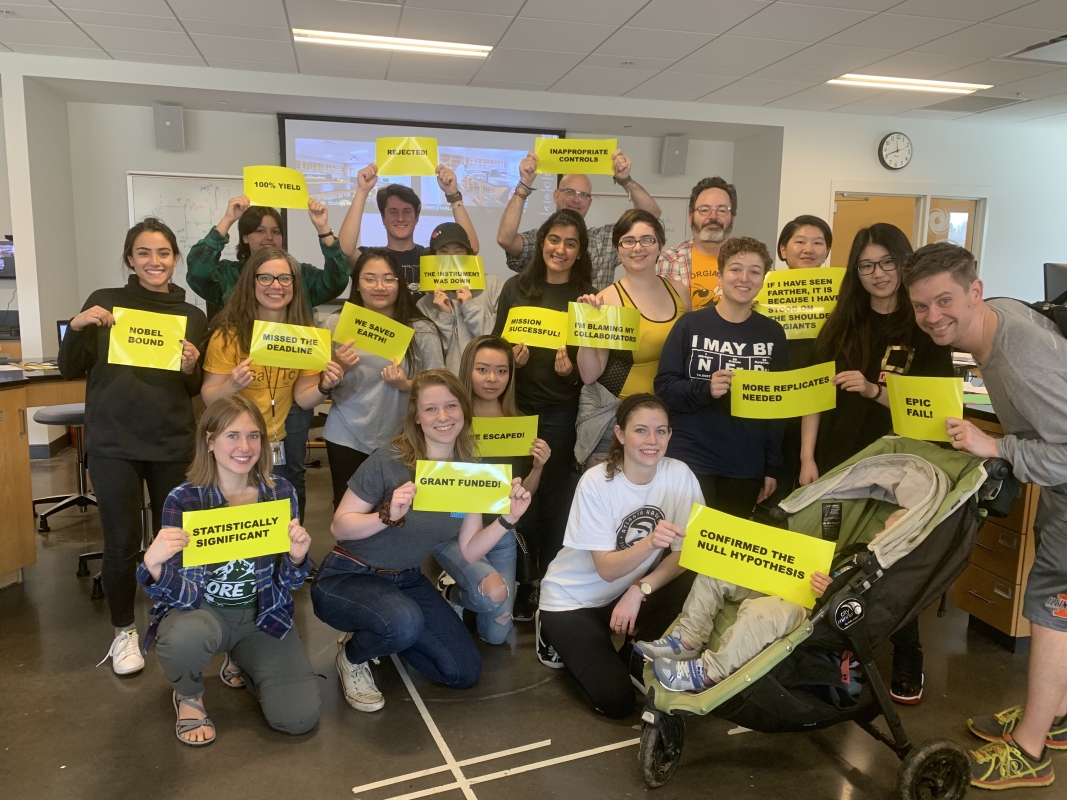
STEMcomm students and staff in 2019 after their event Escape Labs, where the team made biology-, physics-, and chemistry-themed escape rooms.

A student brews and explains the science of coffee at STEMcomm's Sober Science Speakeasy in 2020.

Putting on a (science) show
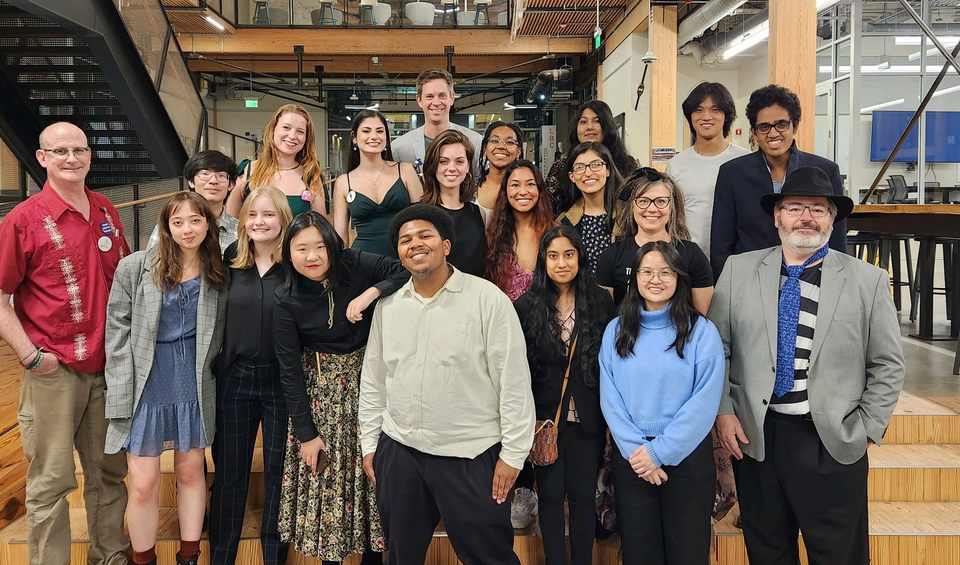 |
| The students — including Jalen Borne, center — and faculty of STEMcomm gathering after The Devil Wears Science. Photo courtesy of Jalen Borne. |
This year’s STEMcomm event was The Devil Wears Science, a science-themed fashion show highlighting the science of sustainable fashion, wearable technology, and more. In addition to doing their own research and creating presentations, the students partnered with members of the College of Engineering, the College of Computing, the Kendeda Building Fellows Program, and Atlanta community members to put on the show.
“Seeing our event partnering with the Atlanta Science Festival come to life was just a crazy feeling and it made me wish that I had found this VIP so much earlier than I did,” shared Carrera Ortiz, a first-time STEMcomm student set to graduate from the School of Physics in May. “Seeing our hard work come together was so rewarding, and made me so happy.”
Leavey says one of the best parts of teaching STEMcomm each year is seeing how taking ownership of events like these impact students.
“There are people who have come in and they've been really reserved — and then the next semester they just grow into these incredible leaders.”
“[STEMcomm has] really made me do things from a different lens,” says Borne. “Every project and every assignment where I have to make some kind of write up, I make myself think a lot more about, ‘okay, the stuff I'm writing, if anyone else reads this that isn't an expert in my field, would it make sense to them?’”
“In my career — no matter what I end up doing,” Borne adds, “I know I want to do some type of outreach and development work once I graduate.”
“I didn’t realize just how much I enjoyed science communication before this,” echoed Ortiz, “and as I’m graduating, I find myself most excited for opportunities that seem to include some aspects of science communication. I hope to be able to do plenty more with science communication even after I have graduated, and I can’t thank the faculty and students that have been involved in STEMComm enough.”
“Everyone should be able to grow and learn in this space,” says Leavey. “So, no matter what your major is, it will work for you — and it's a really inclusive community. We welcome everyone to get involved in this space and to make it their own.”

Marina Guerrero Kesler models a skirt and jewelry made with tagua nuts, a sustainable alternative to ivory widely used in Ecuador, Colombia, Peru, and Panama. Photo by Dane Sponberg (Raftermen Photography for ScienceATL).
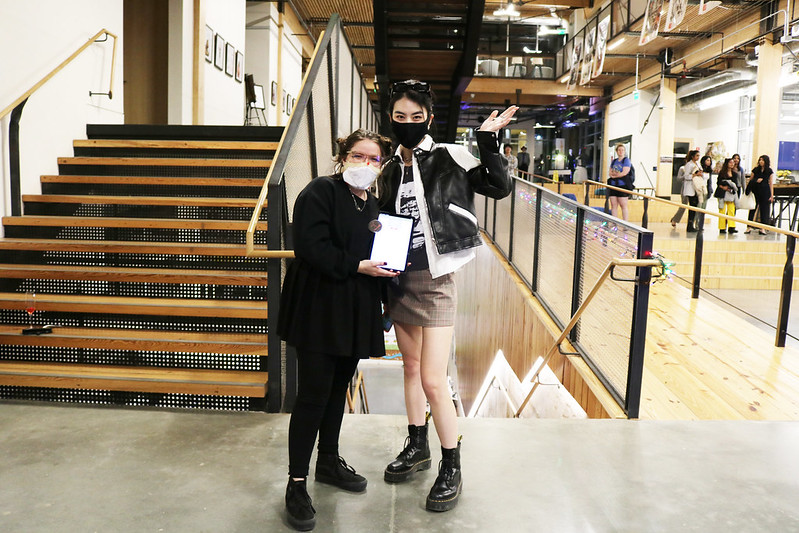
STEMcomm student and physics undergraduate Carrera Ortiz (left) standing with Yuanqing Tian, a Ph.D. student in the School of Industrial Design. Both students were modeling wearable technology research by Sundaresan Jayaraman, a professor in the School of Material Science and Engineering. Photo by Jess Hunt-Ralston.
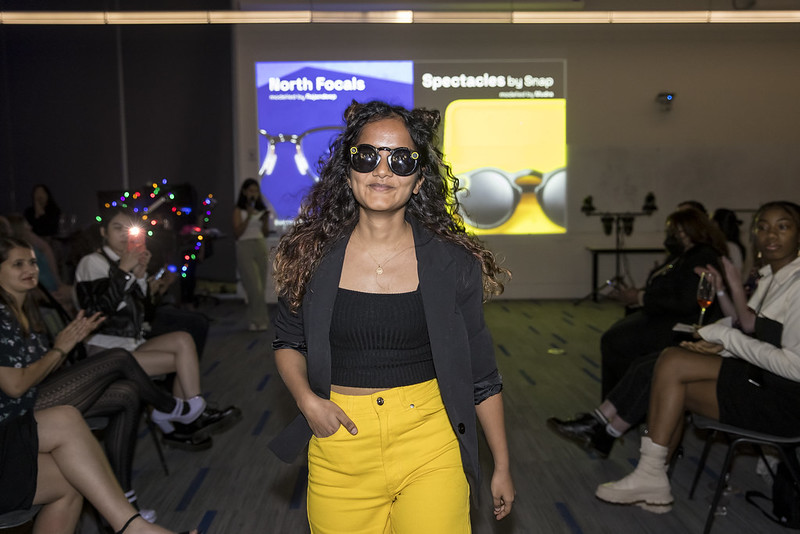
Mudra Nagda, a master's student in Human-Computer Interaction, models wearable computing technology. Photo by Dane Sponberg (Raftermen Photography for ScienceATL).
Related News
Contact
Writer and Contact:
Audra Davidson, College of Sciences
Editor and Contact:
Jess Hunt-Ralston
Director of Communications
College of Sciences at Georgia Tech


